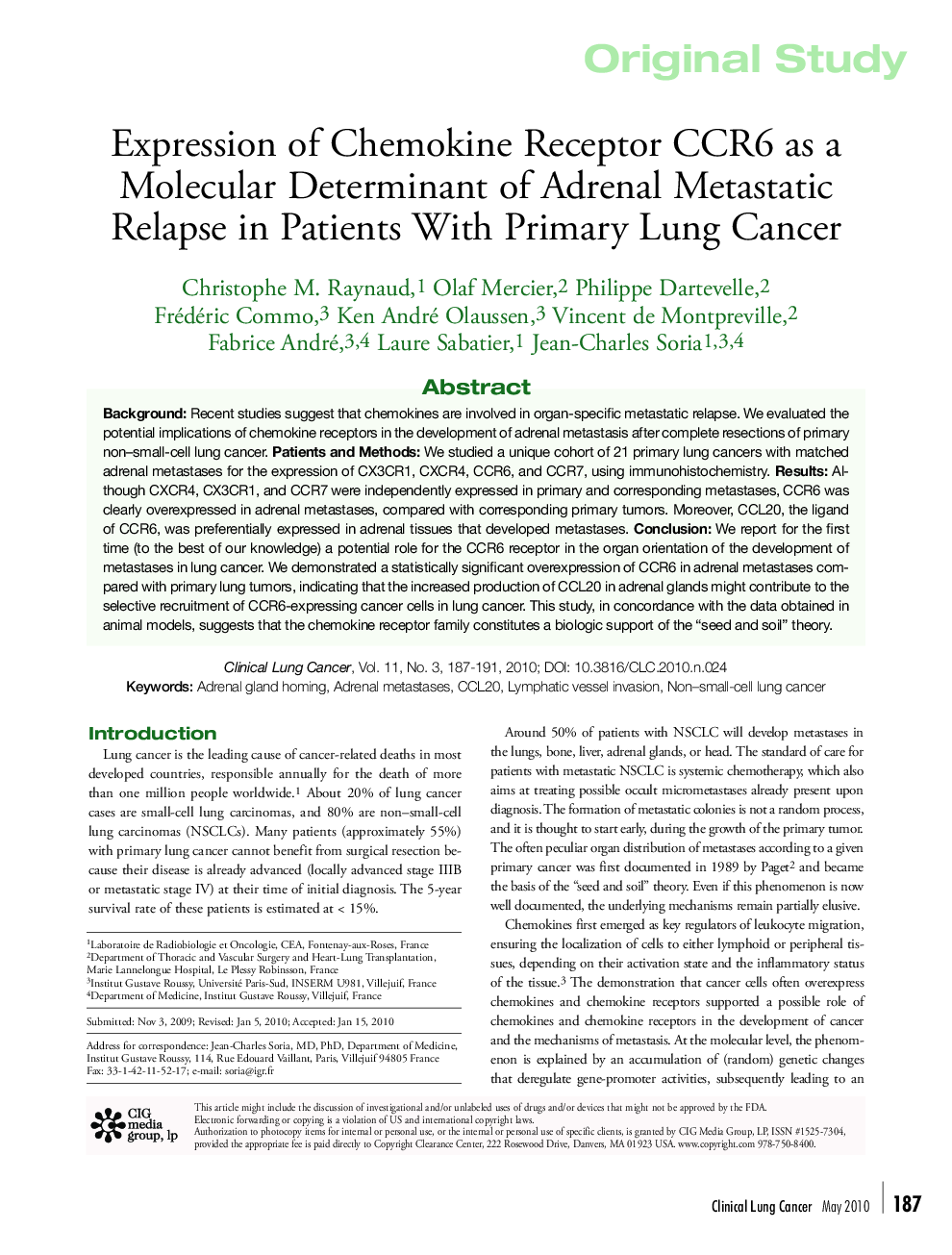| کد مقاله | کد نشریه | سال انتشار | مقاله انگلیسی | نسخه تمام متن |
|---|---|---|---|---|
| 2752964 | 1149603 | 2010 | 5 صفحه PDF | دانلود رایگان |

BackgroundRecent studies suggest that chemokines are involved in organ-specific metastatic relapse. We evaluated the potential implications of chemokine receptors in the development of adrenal metastasis after complete resections of primary non–small-cell lung cancer.Patients and MethodsWe studied a unique cohort of 21 primary lung cancers with matched adrenal metastases for the expression of CX3CR1, CXCR4, CCR6, and CCR7, using immunohistochemistry.ResultsAlthough CXCR4, CX3CR1, and CCR7 were independently expressed in primary and corresponding metastases, CCR6 was clearly overexpressed in adrenal metastases, compared with corresponding primary tumors. Moreover, CCL20, the ligand of CCR6, was preferentially expressed in adrenal tissues that developed metastases.ConclusionWe report for the first time (to the best of our knowledge) a potential role for the CCR6 receptor in the organ orientation of the development of metastases in lung cancer. We demonstrated a statistically significant overexpression of CCR6 in adrenal metastases compared with primary lung tumors, indicating that the increased production of CCL20 in adrenal glands might contribute to the selective recruitment of CCR6-expressing cancer cells in lung cancer. This study, in concordance with the data obtained in animal models, suggests that the chemokine receptor family constitutes a biologic support of the “seed and soil” theory.
Journal: Clinical Lung Cancer - Volume 11, Issue 3, May 2010, Pages 187–191